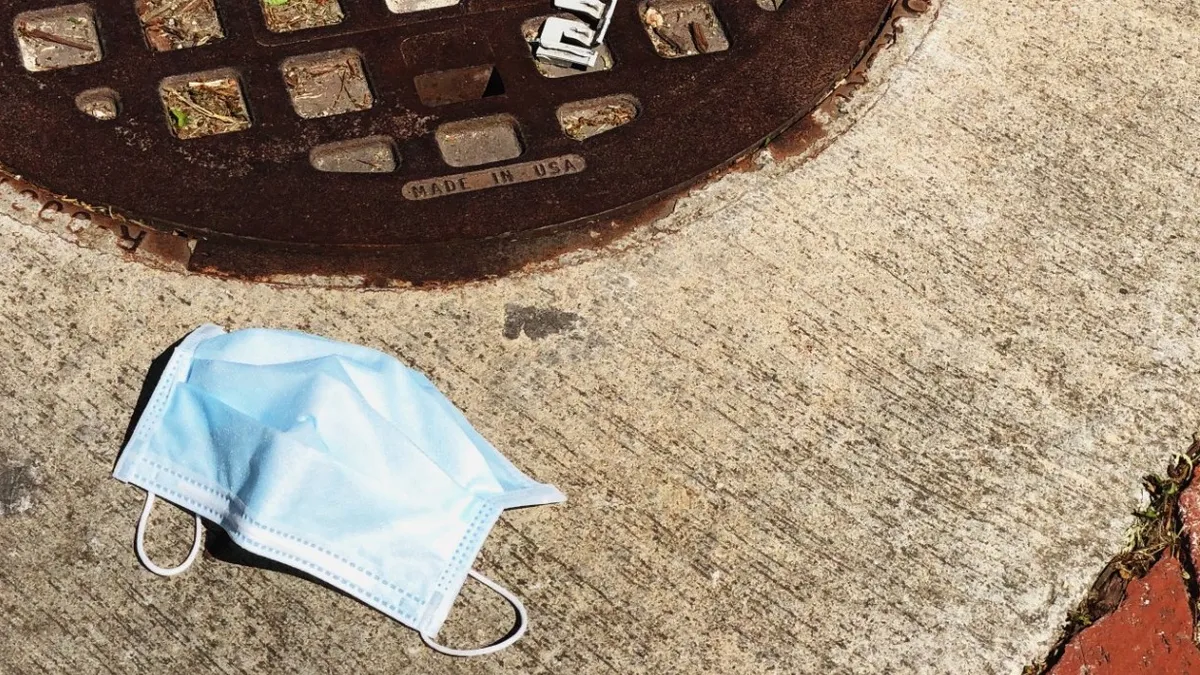Dive Brief:
- Democratic lawmakers and environmental advocates are increasingly connecting issues surrounding plastics to the coronavirus pandemic, arguing the materials pose a public health crisis unfolding alongside COVID-19. The plastics industry has highlighted the role those materials have played throughout the pandemic, but during a House Committee on Oversight and Reform hearing this week, critics said plastics are doing more harm than good.
- The July 7 hearing hosted by the environmental subcommittee focused on "the life-threatening impact of single use plastic on human health," and featured predominately environmental advocates. Plastics Industry Association (PLASTICS) CEO Tony Radoszewski also spoke, noting the role plastics have played in the pandemic. "Simply put, plastic saves lives," he said.
- During the hearing, subcommittee Chairman Harley Rouda, D-Calif., said an increasing national focus on public health should prompt passage of the Break Free From Plastic Pollution Act (BFFPPA), of which he is a co-sponsor. But Rep. Fred Keller, R-Penn., called the hearing a "shameful" attack on plastics, the latest sign of a growing political divide over the issue.
Dive Insight:
Throughout the pandemic, the plastics industry has repeatedly said its products are serving an important role, helping to preserve public health at a time when research into how the virus spreads remains limited. Tuesday's hearing gave environmental advocates and some Democratic lawmakers a platform to respond to those proponents.
In his opening remarks, Rouda said COVID-19 has been found to be more dangerous for people with pre-existing cardiovascular and respiratory problems.
"This link is especially concerning when we consider the disproportionate impact on fenceline communities, who are already facing challenges as a result of significant air pollution from the outsized impacts of petrochemical facilities and waste disposal sites, including landfills and incinerators," the chairman said.
Speakers included Monique Harden from Deep South Center for Environmental Justice, Dr. Kimberly Terrell from Tulane Environmental Law Clinic, Yvette Arellano from Texas Environmental Justice Advocacy Services, and Carroll Muffett from the Center for International Environmental Law, as well as Judith Enck, a former U.S. EPA regional administrator and current president of Beyond Plastics.
Terrell referenced the toll the coronavirus has taken in Louisiana, a state with many petrochemical plants that bolster plastics production. "The burden of proof should be on industry to show the absence of risk from putting a petrochemical plant in a community," she said.
Arellano spoke to similar issues in Houston, the nation's petrochemical capital. She also addressed the ongoing debate over plastic bags. Guidance from the Centers for Disease Control and Prevention (CDC) recommends single-use items over reusable alternatives, though research into the virus has increasingly found surface-to-person transmission is less likely than person-to-person transmission. Arellano said her entire family has tested positive for COVID-19, including her mother, a grocery store worker. However, she rejected support for single-use plastic bags in grocery stores, pointing to a June statement signed by more than 115 scientists from around the world stating reusable items can safely be used during the pandemic.
Saying the ramifications of pollution and production outweigh the benefits of plastics, Arellano said "you would be doing a service to the worker and to yourself" to opt for reusable items over single-use options.
Enck of Beyond Plastics and CIEL's Muffett also underscored the proximity of communities of color to petrochemical plants and waste sites. "[This is] the environmental justice issue of our time," said Enck.
As a solution, Rouda touted BFFPPA — a bill that would enshrine a national container deposit system and extended producer responsibility policies, in addition to banning single-use plastic bags and freezing new plastics production.
Rep. Keller pushed back and pointed to the number of jobs associated with the plastics industry, which number nearly 1 million according to Radoszewski of PLASTICS .
The typical surgical mask is made of non-woven polypropylene, a thermoplastic polymer, and Keller also highlighted the key role those items have played in past months.
"Across the country and the world, people are wearing masks to protect themselves and others," said Keller.
While rejecting arguments in favor of banning plastics, Radoszewski spoke to the recycling challenges facing the industry. He touted the RECOVER Act, an infrastructure bill endorsed by many plastics groups. In April, PLASTICS was among the organizations to send a letter to Congress asking lawmakers to pass the bill as part of a pandemic relief infrastructure package.
"We recognize that there is a solid waste problem, and as such we are investing millions of dollars, even billions of dollars, to help resolve these problems, and we look to Congress as a partner in this," Radoszewski said.
The hearing added to ongoing conversations about both RECOVER and BFFPPA, coming on the heels of a recent Senate hearing on recycling and an action plan released last week by the House Select Committee on the Climate Crisis. That document endorses BFFPPA, along with other recycling-centric bills. Groups like the National Waste & Recycling Association have expressed some concerns about the action plan, which experts see as an indicator of policies Democrats could push forward if they retake the Senate in November.










